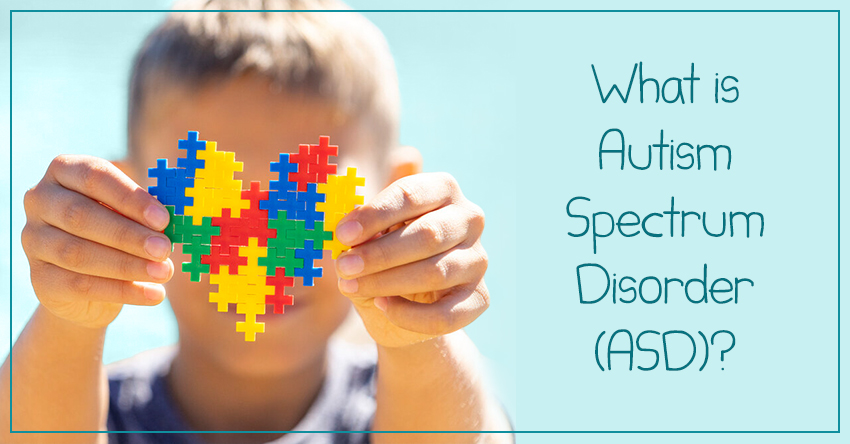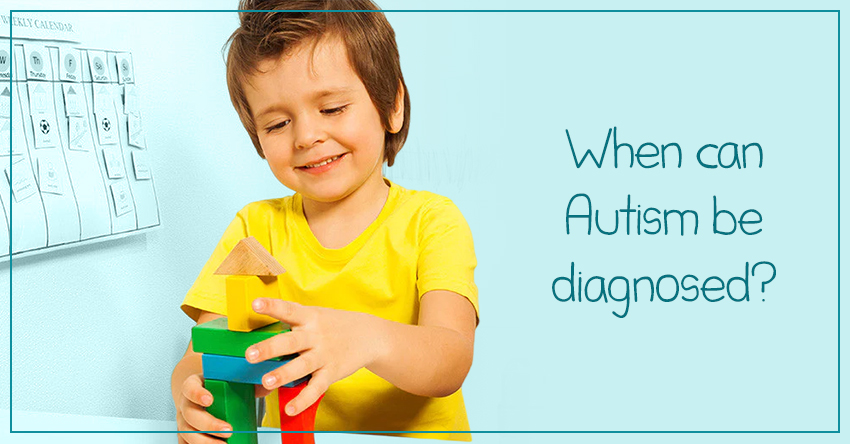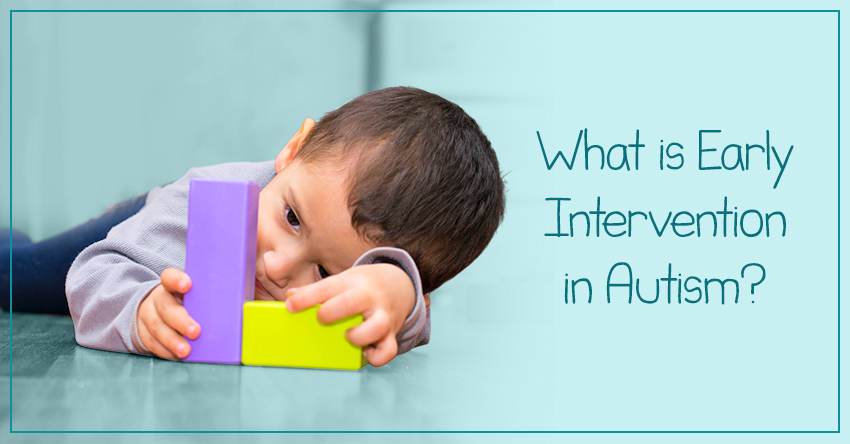Autism Spectrum Disorder also referred to as autism is a diverse group of conditions related to the development of the brain and affects about 1 in 100 children according to the World Health Organization, The characteristics of this disorder can be detected in early childhood and as such early diagnosis can help children receive timely intervention, acquire basic skills, manage sensory experiences, and behaviours, leading to a better quality of life, both, in the present and in the future.
What is Autism Spectrum Disorder (ASD)?

According to the World Health Organization, autism spectrum disorders (ASD) are a diverse group of conditions. They are characterised by some degree of difficulty with social interaction and communication. Other characteristics are atypical patterns of activities and behaviours, such as difficulty with transition from one activity to another, a focus on details and unusual reactions to sensations.
When can Autism be diagnosed?

The sooner the diagnosis, the faster the child can access intervention, and the wider the opportunity to develop and acquire skills and manage sensory experiences and behaviours. Some common signs to look for in children (after two years) include not responding to their name or making eye contact. This is the perfect time for parents to get them evaluated for ASD.
How can we take care of Autism?

Each autistic child is different. Hence, their abilities and needs vary and can evolve over time. There are some who grow up into individuals who can live and lead an independent life, whereas there are others who require life-long care and support.
In either of the cases, Early Intervention can be of great help.
What is Early Intervention in Autism?

Early intervention is a term that means starting therapeutic interventions as soon as possible. For autism, early intervention means specialised support for young children, typically as early as 1.5 to 3 years old. This is because during these years the brain is in a rapid development and functioning stage and early intervention acts as a key. With early intervention skills like speech and communication, social, gross and fine motor, self-care, independence can be addressed more effectively.
Let’s have a look at the top 8 reasons why early intervention is important in autism –
1. Improves overall development:
Early intervention provides a start to your child. Where it is overwhelming for the child to understand what, where and how to start, early intervention helps in all round development.
2.Improves social skills:

Early intervention helps in developing the ability to engage and take each other’s perspective in consideration. By making the child participate in social activities, early intervention helps to improve their social skills.
3. Improves self-regulation and coping skills:

It is often difficult for an autistic child to understand a situation and this brings in the baggage of frustration. Owing to which, an autistic child often develops particular behavioural patterns when things don’t go their way or as planned. Early intervention helps them with self-regulation and coping skills to understand and face certain situations in life.
4. Improves speech, language and communication skills:

A lot of children with ASD have speech and language delays. They may find it difficult to verbally communicate or express themselves. In early intervention, a speech therapist addresses these concerns and helps the child to develop their speech, language and communication skills.
5. Improves independent life skills:

Managing to independently perform basic activities of daily living is an important skill for children with ASD. In early intervention, the occupational therapist teaches the child independent living skills right from childhood which helps them to become independent and tackle challenges as and when they come.
6. Improves physical health:

In early intervention this includes improving their motor skills, strength, posture and balance. This results in an overall development of physical health in them.
7. Improves quality of life:

As a parent, we always wish the best for our children. Through early intervention this goal seems possible and doable. It enhances and improves their overall development which in turn helps them to achieve their true potential resulting in a better quality of life.
8. Strengthens parent-child relationships:
Children with autism process things differently as they are neuro-diverse. Learning about autism will help you as a parent to perceive and understand the world from their end, which in turn will help you to connect and empathise with your child. This strengthens the parent-child bond.
Early intervention can make a considerable difference in the life of the children with autism. Since the efforts are taken at an early age, there are possibilities of positive outcomes in the near future. Also, there are many therapies involved with early intervention that can help children with ASD to cope and do better in their lives.
To know more about the therapies and treatment of Autism Spectrum Disorder (ASD), visit – https://theuniqueminds.com/
Quick Links
Contact for any Info
Contact us to book your appointment with Our Child Development Experts
+91-9205933381
- Theuniqueminds Copyright
- info@theuniqueminds.com


